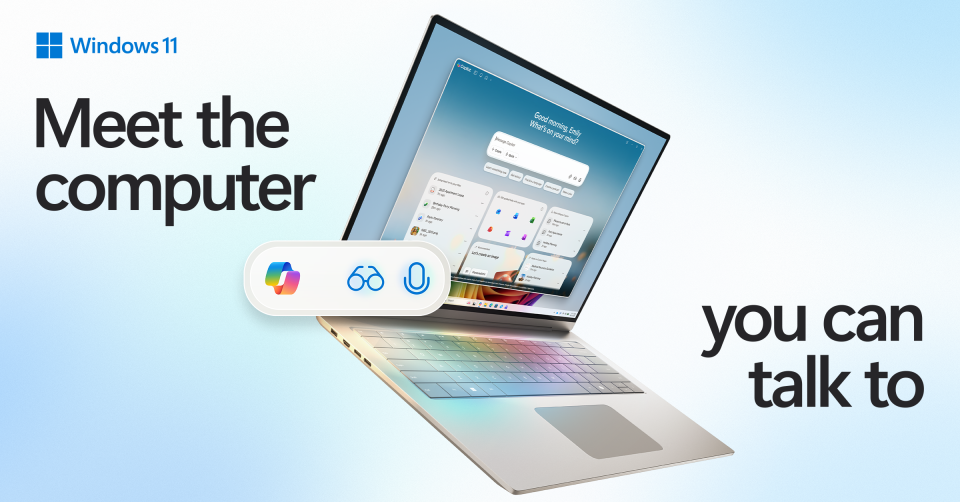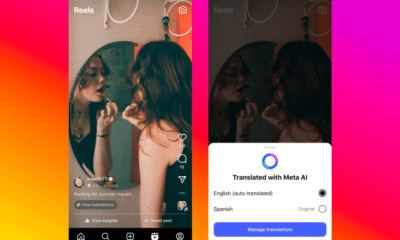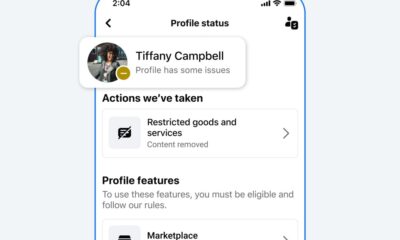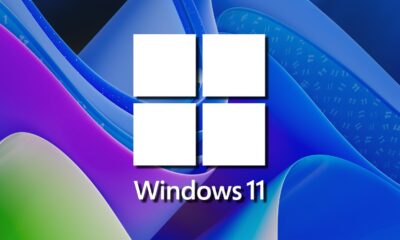Microsoft
Embracing the Future: Microsoft Encourages Conversational Computing and AI Integration

As Microsoft celebrates the 40-year anniversary of its operating system and prepares to bid farewell to Windows 10, the tech giant is looking ahead to the future of Windows. While Windows 12 may not be on the immediate horizon, Microsoft is actively working towards transforming every Windows 11 PC into an AI-powered device controlled by Copilot that users can interact with.
Yusuf Mehdi, Microsoft’s executive vice president and consumer chief marketing officer, envisions a future where AI seamlessly integrates into the daily experiences of millions of users. The company aims to reimagine the entire operating system around AI, creating what Mehdi describes as the “AI PC.”
Microsoft is introducing new AI capabilities in Windows 11 that will integrate AI features into regular PCs, eliminating the need for specialized Copilot Plus devices. The focus is on enabling users to communicate with their computers and delegate tasks to Copilot.
Mehdi emphasizes the potential for users to converse with their PCs, allowing for seamless interaction and automated actions. By granting permission, users can share information with their AI assistants on Windows, empowering the PC to act on their behalf.
Utilizing Copilot’s Voice and Vision capabilities, Microsoft aims to make this vision a reality with the introduction of a new “Hey, Copilot!” wake word on Windows 11 PCs. Voice input is positioned as a third input mechanism alongside the traditional keyboard and mouse, offering users a new way to interact with their devices.
While Microsoft has previously attempted to promote voice features like Cortana on Windows 10, the company is now confident that AI will drive a shift in user behavior and acceptance of conversing with PCs.
Microsoft’s Copilot Vision feature is designed to enable AI to analyze on-screen content and provide guidance to users. The company is rolling out this feature globally to enhance user interactions with apps, troubleshoot PC issues, and offer step-by-step assistance in various tasks.
Building on Copilot Vision, Microsoft is testing Copilot Actions, which allows AI assistants to perform tasks on local PCs, such as photo editing. This functionality is currently in a preview phase to refine the AI model and ensure accuracy.
Microsoft is integrating Copilot into the Windows taskbar for easy access to new features like Copilot Vision and Voice. Additionally, the company is enhancing the search experience to facilitate faster access to local files, apps, and settings.
Despite past challenges, Microsoft remains committed to promoting AI features in Windows 11 through television ads. The company aims to instill confidence in users and encourage them to embrace the idea of conversing with their PCs.
As Windows 10 reaches the end of its support phase, Microsoft is urging consumers to upgrade to Windows 11 and experience the potential of a more interactive and intelligent PC. The company envisions a future where PCs are not just tools but true partners to their users.
-

 Facebook4 months ago
Facebook4 months agoEU Takes Action Against Instagram and Facebook for Violating Illegal Content Rules
-

 Facebook4 months ago
Facebook4 months agoWarning: Facebook Creators Face Monetization Loss for Stealing and Reposting Videos
-

 Facebook4 months ago
Facebook4 months agoFacebook Compliance: ICE-tracking Page Removed After US Government Intervention
-

 Facebook4 months ago
Facebook4 months agoInstaDub: Meta’s AI Translation Tool for Instagram Videos
-

 Facebook2 months ago
Facebook2 months agoFacebook’s New Look: A Blend of Instagram’s Style
-

 Facebook2 months ago
Facebook2 months agoFacebook and Instagram to Reduce Personalized Ads for European Users
-

 Facebook2 months ago
Facebook2 months agoReclaim Your Account: Facebook and Instagram Launch New Hub for Account Recovery
-

 Apple4 months ago
Apple4 months agoMeta discontinues Messenger apps for Windows and macOS





























